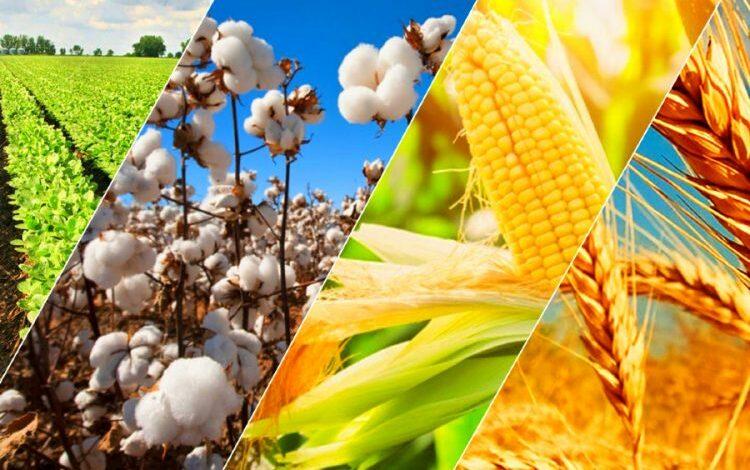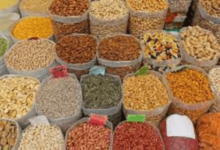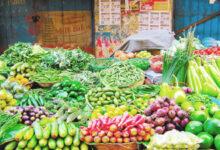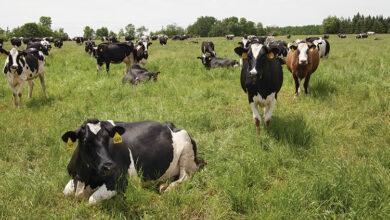
15 Most Profitable Crops to Farm in Nigeria
Agriculture forms the backbone of human civilization, providing sustenance and raw materials for various industries. In this article, we delve into the fascinating world of agricultural crops, exploring the characteristics, uses, and significance of thirteen diverse crops: Cocoa, Oil Palm, Maize, Cassava, Yam, Sorghum, Millet, Groundnut, Tomato, Pepper, Pineapple, Banana, Watermelon, Citrus Fruits, and Rice.InformationGuideNigeria
Read Also: Top 15 Richest Farmers in Africa
👉 Relocate to Canada Today!
Live, Study and Work in Canada. No Payment is Required! Hurry Now click here to Apply >> Immigrate to CanadaThe 15 Most Profitable Crops to Farm in Nigeria Are:
1. Cocoa:
Cocoa, known as “The Food of the Gods,” is a tropical crop that produces the beans used to make chocolate. Native to South America, cocoa is now cultivated in various regions worldwide. Besides its delectable taste, cocoa beans contain antioxidants and provide several health benefits. The cocoa industry plays a crucial role in many countries’ economies, with chocolate being a beloved treat worldwide.200 Romantic Love Message
2. Oil Palm:
Oil Palm is an incredibly versatile crop primarily grown in tropical regions. It produces palm oil, which is used in a wide range of products, including food, cosmetics, and biofuels. Despite its numerous applications, the cultivation of oil palm has faced environmental concerns due to deforestation and habitat destruction. Sustainable practices are being adopted to strike a balance between economic benefits and ecological conservation.15 Most Profitable Crops to Farm in Nigeria
Read Also: Top 15 Lucrative Farming Businesses in Nigeria
3. Maize:
Maize, also known as corn, is one of the most widely cultivated crops globally. It serves as a staple food in many cultures and plays a vital role in the livestock feed industry. Besides its dietary significance, maize also has industrial uses, including the production of ethanol and bioplastics. Its adaptability and high yield make maize a critical crop for food security and economic stability in numerous countries.10 Best Custard for Babies in Nigeria
4. Cassava:
Cassava, a root crop native to South America, has become a staple food in many tropical regions. Its starchy tubers are rich in carbohydrates and can be processed into various products such as flour, starch, and tapioca. Cassava is highly resilient to drought and grows well in marginal soils, making it a valuable crop in regions with challenging agricultural conditions.NYSC Portal
5. Yam:
Yam is a tuber crop widely consumed in Africa, Asia, and the Caribbean. It is highly nutritious, providing a good source of carbohydrates, vitamins, and minerals. Yam cultivation requires ample rainfall and fertile soil. Besides its culinary uses, yam holds cultural significance in many communities, often associated with celebrations and festivals.JAMB Portal
6. Sorghum:
Sorghum is a cereal grain that thrives in hot and arid conditions. It is an important crop for food, feed, and industrial purposes. Sorghum grains can be used for human consumption, animal feed, and the production of biofuels. Due to its resilience and ability to withstand harsh environments, sorghum plays a crucial role in food security, particularly in regions prone to drought and limited water resources.
Read Also: Best Poultry Farm in Nigeria
👉 Relocate to Canada Today!
Live, Study and Work in Canada. No Payment is Required! Hurry Now click here to Apply >> Immigrate to Canada7. Millet:
Millet is another drought-tolerant cereal grain widely grown in Africa and Asia. It is rich in nutrients and provides a valuable source of food for millions of people. Millet can be ground into flour and used to make porridge, bread, and other food products. Additionally, it is gaining popularity as a gluten-free alternative, catering to the dietary needs of individuals with celiac disease or gluten intolerance.15 Best Eye Hospitals in Kano
8. Groundnut:
Groundnut, commonly known as peanut, is an oilseed crop cultivated worldwide. It is an excellent source of protein, healthy fats, and essential micronutrients. Groundnuts are consumed as a snack, used to make peanut butter, and serve as a key ingredient in many cuisines. Groundnut oil is also extracted for cooking and various industrial applications. The crop is not only valued for its nutritional benefits but also for its role in improving soil fertility through nitrogen fixation.
Read Also: 5 Problems Facing Livestock Farming In Nigeria
9. Tomato:
Tomato, often referred to as the “love apple,” is a widely cultivated fruit-vegetable worldwide. It is a rich source of vitamins, minerals, and antioxidants. Tomatoes are used in various culinary dishes, salads, sauces, and beverages. They also serve as the base for ketchup and tomato paste, which are staples in many cuisines. In recent years, there has been a growing interest in heirloom and organic varieties of tomatoes, emphasizing their flavor, diversity, and sustainability.
10. Pepper:
Pepper, known for its spicy flavor, is a vital spice crop. It includes varieties such as black pepper, white pepper, and chili peppers. Peppers are used to enhance the taste of various dishes and are a key component of many cuisines globally. They also have medicinal properties, including anti-inflammatory and antioxidant benefits. Pepper cultivation requires specific climatic conditions, making it prominent in tropical and subtropical regions.
11. Pineapple:
Pineapple, a tropical fruit with a sweet and tangy taste, is enjoyed worldwide. It is known for its high vitamin C content and digestive enzymes. Pineapples are consumed fresh, used in juices, desserts, and savory dishes, and can be processed into preserves and canned products. In addition to its culinary uses, pineapple farming supports the livelihoods of many small-scale farmers in tropical regions.
12. Banana:
Banana is a popular fruit consumed globally and plays a significant role in food security and income generation. It is rich in carbohydrates, dietary fiber, vitamins, and minerals. Bananas are versatile and can be eaten fresh, used in smoothies, baked goods, and savory dishes. They also serve as a convenient and healthy snack. Bananas are an important export crop for many countries, providing economic opportunities for farmers.
13. Watermelon:
Watermelon is a refreshing fruit that is consumed during hot summer months. It is known for its high water content, vitamins, and electrolytes. Watermelons are enjoyed fresh, used in fruit salads, juices, and smoothies. They also have medicinal properties and are believed to support hydration, heart health, and digestion. Watermelon farming contributes to agricultural diversity and provides economic benefits to farmers.
14. Citrus Fruits:
Citrus fruits, including oranges, lemons, limes, and grapefruits, are renowned for their tangy flavor and high vitamin C content. These fruits are consumed fresh, used in juices, desserts, and culinary preparations. Citrus farming is a significant industry in many countries, and the fruits are widely exported. The essential oils extracted from citrus peels are used in perfumes, flavorings, and cleaning products.105 Good Morning Love Messages
Read Also: 10 Factors Affecting Fish Farming in Nigeria
15. Rice:
Rice is a staple food for more than half of the world’s population. It is a cereal grain that provides a substantial source of carbohydrates. Rice is cultivated in flooded paddy fields and is a versatile ingredient in various cuisines, from stir-fries to sushi. The global rice industry supports food security, rural livelihoods, and cultural traditions.
Conclusion:
The world of agricultural crops is incredibly diverse, offering a wide array of crops that sustain and enrich our lives. From the delectable flavors of cocoa and pineapple to the staple foods like rice and maize, each crop plays a vital role in nourishing communities, supporting economies, and fostering cultural traditions. By understanding and appreciating the significance of these crops, we can cultivate a sustainable and resilient agricultural system that benefits both humans and the environment.
Check JAMB Result
Check and Confirm: How much is Dollar to Naira






